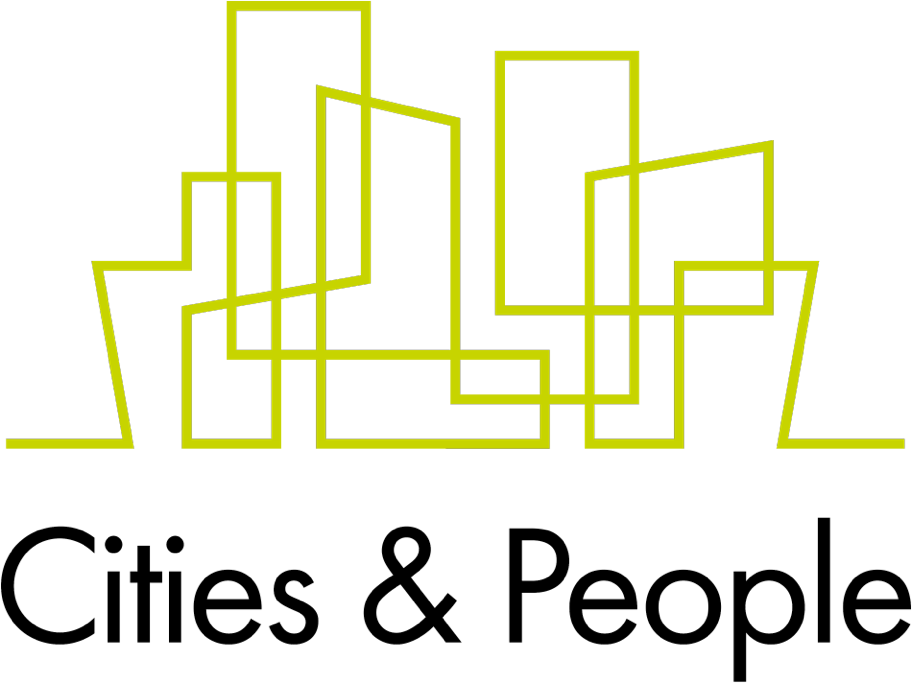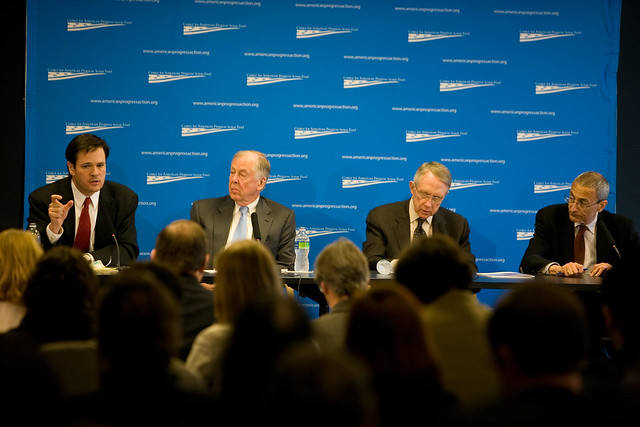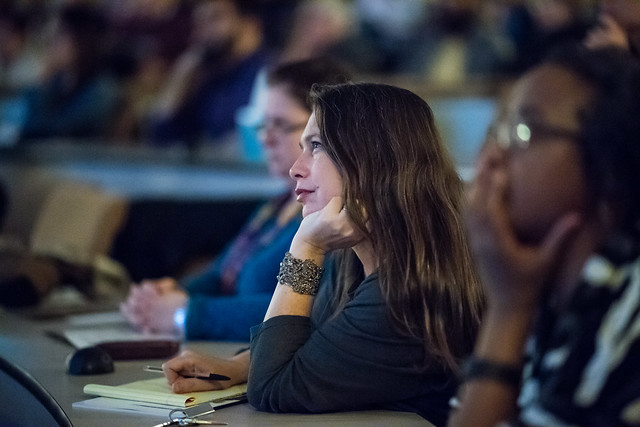Sisterhood Is Powerful, But So Is the White Racial Frame
Last week, I spent five days at the American Evaluation Association's Summer Institute 2017 in Atlanta, and, having my head delightfully crammed full of information, approaches, and questions. I'll be sharing more about what I learned in the AEA courses I took on classifying types of evidence and evaluating coalitions and communities of practice later, But on my mind today is the culture of the institute itself, how it felt to be immersed in it, and how I can evaluate my own experience there. But first, a story.
I often work with the Liberty Hill Foundation, whose mission is to invest in leaders on the frontlines of change to equip them with the skills and relationships they need to build power and advance equality and opportunity in Los Angeles. A few years ago, we were putting together a community panel on targeted hire in public projects as a means by which to stabilize at-risk communities. We got some great panelists, including Lola Smallwood Cuevas of the Los Angeles Black Worker Center and Ashley Thomas from the Los Angeles Alliance for a New Economy.
On the night of the panel, we had a good turnout, with the crowd including resident-advocates, nonprofit professionals, and several grassroots leaders from our own Commissions Training Program cohort. The panel discussion was going well and picking up steam when an older African American man in the back raised his hand and was given the microphone. "I have a question," he started. "Why are there no men on this panel?"
From my vantage point in the back, I watched reactions wash over the faces of everyone at the front of the room – Liberty Hill's white, female staff member, who was serving as moderator, and the four women to her left, all of whom were women of color. All eyebrows were up expectantly, including the moderator's, and the room was quiet.
Finally, another man in the audience – a white man – without turning around to face the man asking the question, threw his hands up in the air, and shouted, "Because all the other panels in the world are all men!" There was some nervous laughter, but mostly the moment was over; the panelists turned their attention back to the discussion on targeted hire as though the question of gender had never been posed.
After the panel, as I thanked each for her participation, none of the women of color discussed the incident with me. I wasn't surprised that it was not a moment of solidarity the way it would have been had we all been white, including the disgruntled man. The variables were different, and I respected the complexity.
Last week in Atlanta, nothing like what happened at the targeted hire panel in LA occurred. We were a female-dominated group, including instructors. Men were less well represented in the group overall, but of the men who were there, there were also many men of color. A good chunk of women in attendance were women of color, as well.
In Atlanta last week, when the microphone was passed for Q&A, I never once heard a "question" that was really a humblebrag or a challenge or a plug or completely off topic. When women were presenting, no one interrupted them or silenced them or told them to be more courteous or played "devil's advocate." It seemed to me that we were all simply learning and sharing strategies together, and everyone benefited – including the men in attendance. The men at my tables were seemed more at ease, more genuine, and more able to ask questions without all the posturing as well than at conferences that are male-dominated (or at which participants are gender-balanced but speakers are mostly men). By taking a break from traditional masculinity, the men at the convening were able to be their own best selves as well.
And perhaps I could end this narrative right here, with something about sisterhood being powerful, about how when men get out of the way, women get the work done. But that's not the whole story. Not for everyone, and so not for anyone.

© 2012 Randstad Canada, Flickr | CC-BY | via Wylio
Yesterday, I was scrolling through Facebook and saw someone point excitedly to the Ernest R. House's new article in the American Journal of Evaluation, "Evaluation and the Framing of Race." I can't recommend this article strongly enough to other evaluators, but I'd also recommend it for program developers and funders as well. I may even assign it to my students in the fall.
Toward the end of the article, after telling his own, personal stories about times he did not detect his own racial bias until well after the event (sometimes decades), House draws important connections between the lessons those stories reveal and how we, as evaluators, operate in the context of the white racial frame (citing Joe Feagin's book of the same name – also highly recommended).
The concept of the frame is one I use a lot in teaching, particularly in terms of differentiating it from lens. While I ask them to become adept at using various lenses (for detecting white supremacy, patriarchy, imperialism, etc.), I also ask them to consider the way that we all see the world through a frame that is built from our limited experiences and the messages we receive from others, including media. I ask them to try to understand that frame as a frame – to distinguish it from a universal reality.
The implications and tips House offers are appropriate for white folks no matter where they are in the process of recognizing and pushing back on the white racial frame, and include everything from reading the books and papers House has cited in the article to using collaborators, employing deliberative democracy evaluation techniques, and critiquing distortions about race outside of the realm of evaluation itself. I'd agree with him also that understanding how cognition works is a great place to start understanding how powerful framing is in your own perception and decision making.
After reading House's article, I started thinking about my own internal evaluation of the evaluation training in Atlanta, the narrative I'd chosen for myself and how I'd talked about the conference to others since returning home. I realized that, though I work on racial justice every day, though I know quite a bit about cognition, about narrative coherence and bias, I'd still made a fundamental error and had not pushed back on my white racial frame in characterizing the event.

© 2017 U.S. Department of Agriculture, Flickr | PD-MK | via Wylio
The Institute began for me on Sunday. I'd signed up for the one-day pre-conference intensive course – Culture and Evaluation offered by The Evaluators' Institute and taught by the phenomenal Dr. Leona Ba. After lunch, our tables formed small groups and we were given case studies to discuss. The case studies involved communication styles that were acceptable in some cultures but offensive in others. One of the women in my group, a Black woman in her early thirties who serves as a Director for a well-known national non-profit, was oddly quiet when we started unpacking the case study, and when she did contribute, she seemed tense. Finally, she told us what was going on.
My classmate had checked into the hotel earlier in the day, changed into shorts and a t-shirt, and gone out sightseeing. Our hotel was one of those huge conference centers. Staff were posted everywhere to keep folks from getting lost and to answer any questions. When she returned at dinner time, confronted with multiple towers and elevators and escalators, she asked the concierge how to get to the 12th floor, where her room was located. In return, she got a stern look and was told that visitors were not allowed to go upstairs without hotel guests escorting them: "He'll have to come down here and get you," the concierge said, and turned on his heel and walked away.
My colleague was still livid the next day and could hardly concentrate on our work together. As she told the story, I noticed the other white women at our table looking confused. I wondered if they didn't understand the implication that was pinned to our colleague, what was making her so justifiably angry.
I realized on that day – on the first day – that we weren't all having the same experience at the conference. But then I put her experience out of my head as an outlier and went forward with my non-intersectional narrative anyway, enjoying three additional training days and riding the high of my nerdy-women-power story, despite the fact that clearly not every woman was having the same experience. Not with the world immediately outside of our convening, but, I'm quite sure, not within the convening itself.
Last week, I wish I'd worked harder to ditch my non-intersectional feminism frame, but apparently I'm still a work in progress. Since returning from Atlanta, I've tried to recall who dominated the group work in each of my discussions, who had the mic, and how white women took up space generally, but my bias toward the narrative I wanted kept those details from registering.
Unlike the targeted hire panel incident in Los Angeles, after which my impulse was to gather up the women from the event and dish afterward – "Can you believe that guy? Guess he didn't get the memo on women being as smart as men …" – in Atlanta, I gave into my bias and allowed myself to create the story I wanted to be a part of. In LA, I shook off my cognitive framing and saw the variables in play clearly. In Atlanta, the variables pretty much landed in my lap and I ignored them in favor of a white racial frame – in favor of a bleached-white feminism.
Just because we got something right once doesn't mean we are going to get it right again.
That's exactly why the un-questioned white racial frame – or any such frame – is so dangerous for evaluators. Our work often has the power to determine who gets funding and how much, which programs live past the pilot stage and which do not, which communities get support to fight for clean water, better schools, less aggressive police, more food access. In order to do this work, we must understand our own frames and learn to, as House suggests, juggle multiple frames, routinely testing each against one another as part of our work.
There's no other way we can do this work well.
Laurie Jones Neighbors is an independent consultant and educator who specializes in developing, implementing, and assessing programs and educational experiences in support of equitable political representation and local, regional, and national decision making by low-income communities and communities of color.



